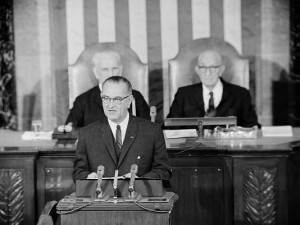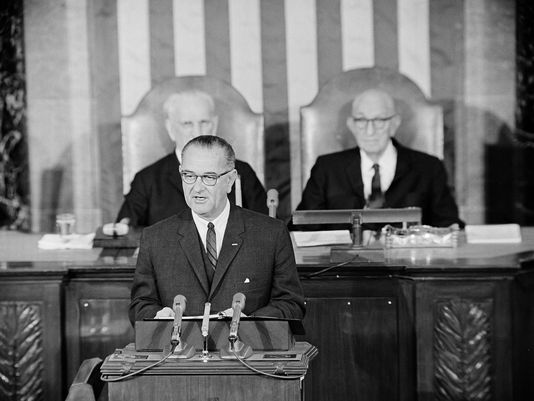
Last week the U.S. Census Bureau released its report, Income and Poverty in the United States: 2013. The agency announced that “in 2013, the poverty rate declined from the previous year for the first time since 2006, while there was no statistically significant change in either the number of people living in poverty or real median household income.”
Sure to spark reactions from both sides of the political aisle, the report, along with this year’s 50th anniversary of the U.S. government’s launch of a “war on poverty,” present an opportunity to reflect on the effectiveness of the United States’ domestic poverty alleviation strategy to date.
But amid the necessary analysis and debate about government’s role in helping the least among us, it is essential to keep at the forefront of our thinking the primary figure poverty alleviation efforts are intended to help: the human person. Through taking the time to recognize each individual’s unique gifts and creative capacity, we can more fully appreciate his/her contribution to society and form relationships that enable this flourishing to take root.
Ismael Hernandez, founder and executive director of the Freedom and Virtue Institute, echoes the importance of recognizing people’s true nature. He says, “The person needs to be called by name, the ‘poor’ need for us to dump that label and look at them as unique and unrepeatable human beings, not simply another token belonging to an expansive and yet shallow sea of sameness.”
This involves having “not only a heart for the poor, but also a mind for the poor,” and taking the time to immerse oneself in the landscape in which one works, before taking action. PovertyCure partner, Perpetual Help Home, Inc. is embracing this thinking and doing great work to form relationships with women in troubled situations and assist in their climb out of poverty. By speaking to these women, with histories of incarceration and homelessness, and learning about their needs, the Perpetual Help Home staff determined that a housing, enterprise development, and training program would be an effective way to provide foundational assistance and empower them to improve their environment.
In PovertyCure’s interview with Perpetual Help Home’s executive director, Cheryl Miller, she shares that her desire to empower blossomed from personal experience living in poverty. She explains:
…26 years ago I was a welfare mom, and I have two children that were born into the welfare system.
And fortunately for me, the people who got engaged in my life were people who understood the principles that are embraced in the message of PovertyCure. They understood that I didn’t need to be fixed and I didn’t need handouts. That I needed to be challenged and I needed to be pushed, and I needed to take control of my own life. And I did. And I went back to school, because I knew that my children wouldn’t have a future if I couldn’t do something to move past the economic situation. And it wasn’t even the economics; it was the whole sense of hopelessness.
So I went back to school and I got my degree and I became a teacher, but then I felt like it’s time to do something different. And when I got to working the first week at Perpetual Help Home, and I walked in and I saw the women and I heard their stories, and recognized them, I realized I was just looking at the past me.
Miller explains that through her work, she doesn’t want to perpetuate the notion that, “I have what you need and I can fix you.” Instead, she states:
I want to be a part of building something and being part of a message that says, ‘We recognize that you have something significant to offer. We recognize that you were created in the image of God, and we want to provide you the opportunity to live that in the fullest extent possible.’
In this 50th anniversary year of the “war on poverty,” we should hope for a renewed vision of the human person, as unique, unrepeatable, and capable of amazing feats. Though policy makers will debate about aid-plan expansion or reduction, we on an individual level have an equally important responsibility in developing our conscience and affirming the dignity of others.
As Hernandez states, “…we can still hope that Christians might realize that they are called to be faithful servants, witnesses to the beauty and dignity of the poor.”
See PovertyCure’s video interview with Cheryl Miller below:
This article is cross-posted from the PovertyCure Blog.

